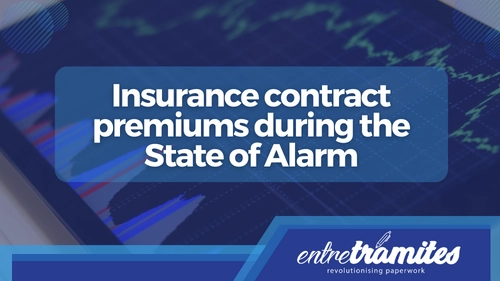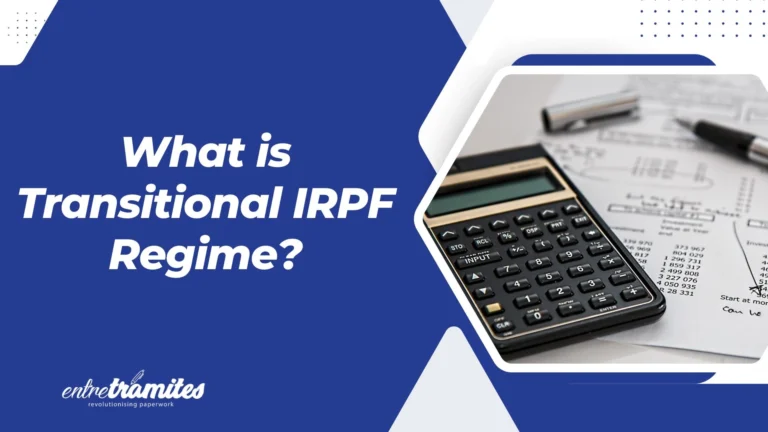The effect that the coronavirus crisis is having and will have on the economic and commercial life of our country is a fact that worries the entire population.
It is also a reality that the declaration of the State of Alarm and the measures taken for this purpose have created exceptional legal situations (suspension of non-urgent procedural actions, moratoriums on mortgage loans, deferral of taxes, etc.) which will also affect insurance premium in Spain.
But in which ways can the State of Alarm affect an insurance premium in Spain?
“The insurance contract is that whereby the insurer undertakes, by means of the collection of a premium and in the event of the occurrence of the event whose risk is the object of coverage, to indemnify, within the agreed limits, the damage caused to the insured or to pay a capital sum, an income or other agreed benefits”, establishes Spain’s Insurance Contract Law, in its first precept.
To the extent that Royal Decree 463/2020 declaring the State of Alarm limits the movement of people (Art. 7), suspends face-to-face educational activity (Art. 9), or suspends the opening of the vast majority of premises or establishments (Art. 10), the risk of the events that companies usually insure occurring, in many cases decreases significantly. On certain occasions, it practically disappears.
Examples of a situation where an insurance premium is applicable
In a restaurant business, which is currently closed to the public and is not allowed to open, the risk of a worker suffering a work accident covered by an insurance contract disappears, or the risk of suffering a fire caused by the facilities themselves, since the kitchen or other electronic devices are not in use.
Likewise, the risks of certain insured eventualities occurring in an educational center that does not have students are reduced. The range of casuistry can be immense, and it is expanding as the legislation in this regard is also increasing.
But the question we have to answer is whether our legal system provides for this exceptional situation. And in our opinion, the answer is positive. The Insurance Contract Law itself, in its second section, where it deals with the duty to declare the risk, reserves an article, number 13, for the reduction of the insured risk.
Specifically, said text allows the policyholder or insured person, while the insurance contract is in force, to inform the insurer of the circumstances that reduce the risk in the event that, if they had been known at the initial moment of the contractual relationship, they would have led them to contract the insurance on more favorable terms.
And the consequence of this communication is also included in the law and is the following: “At the end of the current period covered by the premium, the amount of the premiums of future contracts must be reduced in the corresponding proportion. In another case, the policyholder has the right to terminate the contract and for the insurer to return the difference between the premium paid and the one that would have been due from the moment it communicated the reduction in risk”
Conclusion
The policyholders, insured parties, or, as the case may be, insurance brokers acting on their behalf, which refer to a hotel and catering business, an educational center, a museum, or any other entity among those whose opening to the public is suspended by means of the State of Alarm, and which precisely make sense as a business only when their facilities are open to the public, must communicate, as soon as possible, to their insurance companies, the decrease of the insured risks due to this exceptional situation.
And the insurance company will be obliged in such a case, not only not to raise the price of the insurance premium beyond the rise in the IPC (Consumer Price Index) (on which there is very reiterated jurisprudence that could be addressed in another text), but also to reduce the price proportionally in the following insurance premium.
But we cannot forget that the claiming of a right requires strict compliance with the legally established channel. In other words, we should not expect insurance companies to carry out a generalized reduction in insurance premium prices of their own accord, because they are not obliged to do so.
They are, however, obliged to attend, on a case-by-case basis, to the notification of a reduction in each of the risks made by each of the insured or policyholders, and only in that case to reduce the future premium proportionally.
In short, and to leave no room for any doubt, even if the circumstance to which we refer is public and well-known, if the insured or policyholders do not notify the companies of the reduction in risk in a reliable manner, it will not be possible . In no case, take advantage of the price reduction in the future premium.
In short, and to leave no room for doubt, even if the circumstance to which we refer is of public and notorious knowledge, if the insured or policyholders do not inform the companies of the reduction of the risks in a reliable manner, it will not be possible, in any case, to benefit from the price reduction in the future insurance premium.
Do you need help with your paperwork in Spain?
We want to listen to you and know what your questions are about the procedures you have to carry out. Count on the advice of our experts to clarify all your doubts.
In Entre Trámites we invite you to know about all our services. Fill in our contact form and we will call you to help you as soon as possible, schedule a free online consultation, or simply text our WhatsApp.
You may be also interested in: The impact of the coronavirus on investing in charts





